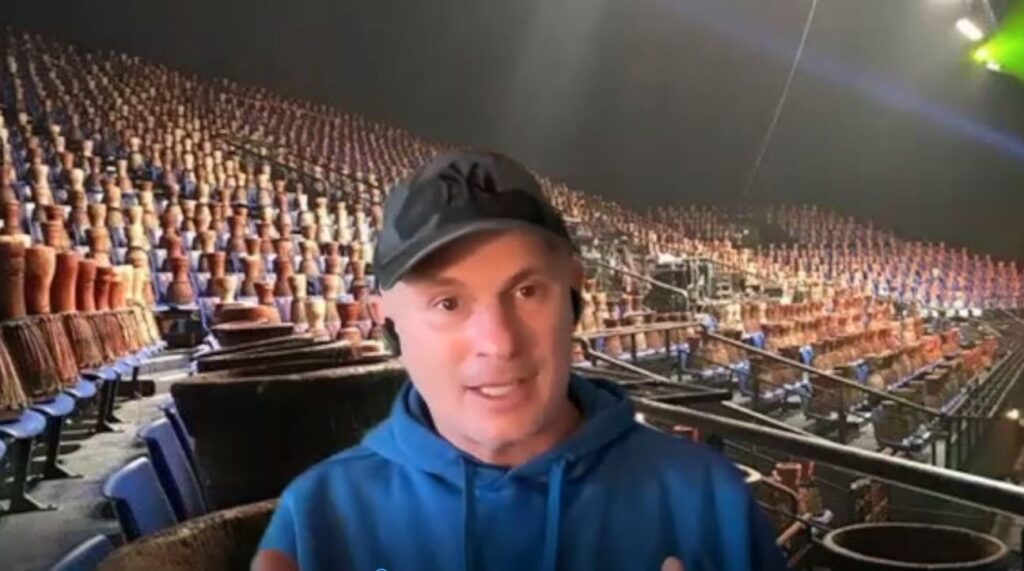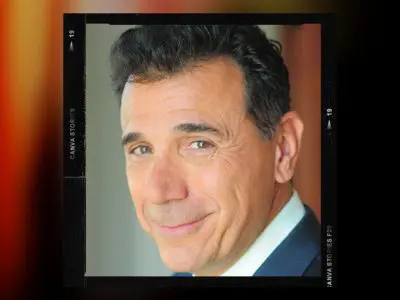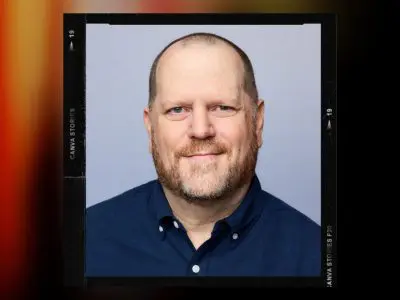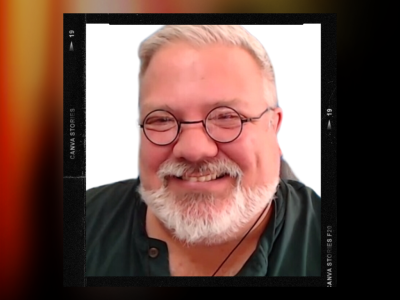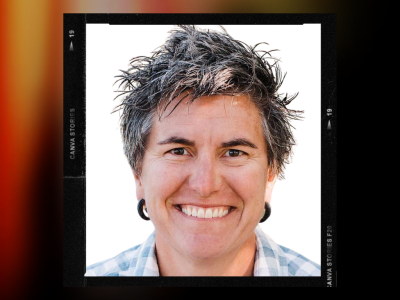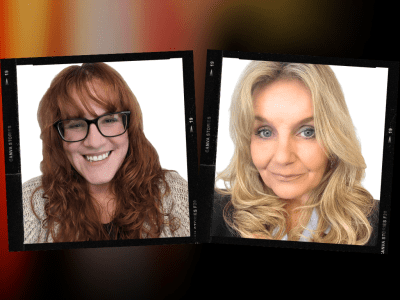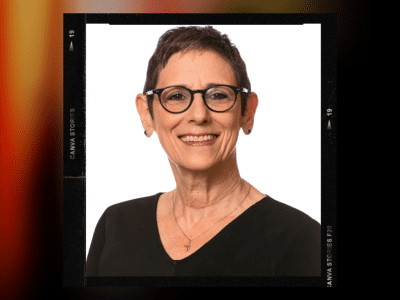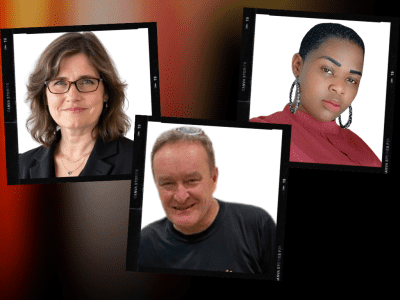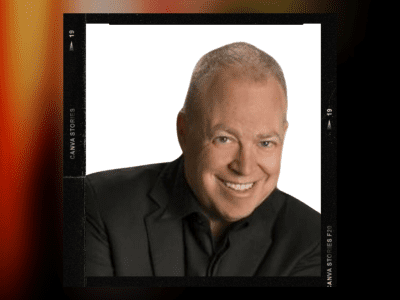Finding the Bottom Line of CSR: Cultural Empathy
w/ Doug Manuel
Use the buttons above to listen now.
Transcript - Finding the Bottom Line of CSR: Cultural Empathy
Doug: On this episode of team building saves the world. You know, if you ask any of the Jembe masters, why does the Jembe exist? Yeah. They’ll tell you that the Jembe was put on earth to bring people together. The business and the workplace was becoming ever more transactional and less and less human. I think what young people are looking for today is for business to be used as a force of good.
Rich: Yes, two
Doug: completely different cultures, two completely different ways of doing something and you bring those two together and it’s just like that’s where the magic is
Rich: Hello team, it’s me your old friend Rich Winansland host of team building saves the world Welcome to season five of the show Where I speak to thought leaders from around the world, [00:01:00] discussing variable strategies and tools to help you and your team build a better work environment. And today we are exploring new ways of organizational culture and leadership with our guest performer and Oprah endorsed Ted global speaker, Doug Manuel.
The first, I have to share some love with my supporters at team bonding. Your team is ready to experience teamwork through the power of play. Then visit teambonding. com to learn more. Now team, please join me in welcoming. Former BBC and now Netflix documentary producer and creator of the Jeff Award nominated stage show Do You Speak Jembe, Doug Manuel.
Doug!
How are you today, my friend? Thanks so much for coming on.
Doug: I’m doing great. I’m doing great. I almost wanted to grab one of those drums that you can see behind me there to, uh, to accompany that intro music.
Rich: Yeah. I love it. I love it very much. We, I do want to get into it, especially explaining to my people out there, [00:02:00] my team who, what a gem bay is, but first let’s find out a little bit more about you.
I always started out the show pretty much the same way. Just tell everybody out there about yourself and how you got into the world of shaping corporate culture and leadership.
Yep.
Doug: Well, I, I basically was, um, a BBC documentary producer for eight years. Um, from the age of, well, I got into TV when I was about 18 and then just kind of worked my way up the ladder.
Started off as a runner on a film set and then ended up working in documentaries as a runner. and then production coordinator and an associate producer. And then the last two years that I worked at the BBC, I was working on a documentary about African elephants, which was extraordinary because I got to travel all over the continent, the mother continent, and film these majestic, incredible animals.
And it was all about how the animals adapted according to where they were in Africa, basically according to their environment. Right. And in parallel, [00:03:00] and at that time, I was invited to go on a djembe workshop. The djembe is the kind of hourglass shape African, West African drum. And that day I, I fell in love.
I fell in love with the drum. And at the end of making that film on elephants at the BBC, my boss, said to me, okay, now we’d like you to work on a film on, on gorillas. And when I sat down and I did the budget and the schedule, I realized I was going to get about between seven and 12 weeks travel in three years.
And I said, uh, I can’t stay here and I love you. And I love the BBC and I love particularly. I would say wildlife filmmaking, but I really have to follow my heart. So I packed my job in and I took myself off to West Africa and basically found myself varying different teachers. And I played the djembe for five, six hours every single day until I couldn’t move my fingers and it became an obsession and it became an absolute passion.
And somehow something woke up inside me. Uh, [00:04:00] I I’d had a, I guess a challenging childhood. I I’d seen my dad have a heart attack when I was six. I was sent off to boarding school when I was eight. My mom died when I was 21, so I was pretty lost, even though I had, you know, a successful career in TV and film.
I never really found myself, and when I started playing djembe, as I say, something inside me woke up, and I thought to myself, everybody in the world needs to play djembe. So, that’s basically my story. You know, if you ask any of the djembe masters, why does the djembe exist? Yeah. They’ll tell you that the djembe was put on earth to bring people together.
And the actual word djembe comes from the Malinke tribe of West Africa. And back, back in the day, um, and then I guess they still say it today. They used to say anchor J, anchor bay, anchor J, anchor bay, which means everybody’s gathered together. And anchor J, anchor base, it was djembe. And that’s where the word djembe actually comes from.
Ah. So the drum does, its, its [00:05:00] job. The rhythms certainly bring people together. And I think actually one of the things that really struck me when I was in, in Africa on this first trip was that over and above studying the music, I was studying people and I was studying community, and I was studying collaboration.
Rich: Okay.
Doug: And I think that that’s where the whole, I mean, I come from a belief or I hold a strong belief that, that politicians don’t rule the worlds. Companies do. And if we can bring people together in, in organizations and have people work together, not just in organizations, but between organizations, then I think we can make a positive, a positive difference and have a positive impact in the world.
So that that’s really where I put my sights on the corporate sector to do what I could to, to really bring people together.
Rich: How is it you come about doing that? I mean, what is, what did the Jim Bay teach you that you now teach to others to bring them together?
Doug: When I [00:06:00] first got back from from West Africa on from this initial six month study trip, I came back with 15 drums and I started running workshops in schools and prisons And refugee centers and in the uk, in London.
And I have to say that, that working with these, well high, high security prisons and with kids, they were my best teachers. Okay. In terms of how, how to facilitate. And I think it was by working with them that I began to build a toolbox of facilitation skills of how to, you know, use the drum and use the rhythm, um, going further.
And I, and I, you know, I’ll admit. For three years, I, I drove around with 15 drums in the boots of my car. And, and I struggled to make any money. And at the time there was an organization in the UK that was called arts and business. And what they did was they trained up artists to show them how that art form could be used for companies.
So if you, what they had us do was break down every skill, single [00:07:00] skill set that we were using me as a drummer, and how could that relate to the business world? And so as an example, you can’t think rhythm, right? Rhythm has to be felt, right? So that opens the door to a whole piece around emotional intelligence.
Rich: Okay. And
Doug: we know, we know we trust somebody because we feel it. We don’t think trust. It’s a, it’s a feeling that we have. Gotcha. And so if, if we talk about flow and if we talk about working in rhythm, either with ourselves or with each other, that really demands that we come back to the felt perception part of who we are, that feeling part of who we are.
And really today, that’s the only thing that separates us from AI.
Rich: Yeah. I was watching one of your TED talks in preparation of meeting you for the show. And you do talk about something that I saw that was really spectacular. You talk about how with AI and the fact that we’re working a lot more from home than we ever had before, meaning we’re not together face to face and side by side, so we’re missing [00:08:00] something.
We’re starting to lose that coming together feeling. So, what is it you think we’re actually missing, and how does your work with Ajembe and, and this, this philosophy of bringing people back together work?
Doug: I think what we’re missing today, I mean, interestingly, during, during the pandemic, uh, I reached out to all of my clients that I’ve been working with for 20 odd years and, and sent them a survey.
And what became very, very clear was that the business and the workplace was becoming ever more transactional and less and less human.
Rich: How so though? And so, I mean, what is it, what is it that they were seeing and that you were seeing?
Doug: Well, it’s just that, really, that everything was becoming very transactional.
People were, you know, getting on a Zoom call, and it was less about relationship, and it was much more about the business that needed to be done. Okay. So, I believe that, you know, if we’re going to come back to being human, yes, there are those kind of coffee [00:09:00] machine moments that happen by default when we’re in the office.
Right. Um, but actually, we have to come back to that feeling part of ourselves. That’s where empathy comes from.
Empathy then goes to another level. If we think to ourselves, what does it actually feel like to be in that person’s shoes? That’s true empathy. And so, you know, if you think then again about drumming and rhythm, it’s about coming back to that felt part of ourselves and it’s really essential today. It’s just really essential.
I mean, all the jobs that I think, um, many, many kids are studying for today in our universities, really around the world, within three to five years, they’re all going to be done by AI. Oh, wow. So. So really all we have left is that human connection and how do we collaborate and how do we work together? And I think during the pandemic, one of the things that happened was that, you know, we became ever more separated.
And it’s not [00:10:00] like we don’t know how to be in community, but we need to relearn how to be in community. And why not relearn from the specialists, which is, you know, rural Africa, mother Africa, the mother continent, which scientifically, if you, if you go far enough back, we all come from Africa. I mean, that’s the, that’s the cradle of humanity.
And so why don’t we learn from, from the specialists who are still living in community? And, and, and, Community is their very, very way of life. Collaboration is their very way of life. And so if we can relearn what we’ve forgotten by going back to studying how it was done and how it’s still done, then, then I think that we’re on a path where productivity can once again soar.
Rich: So let’s get into some nitty gritty of it, because podcast, everybody has come on and talked about the need of empathy. The, the need of looking at someone and saying, what’s it like for them being where they are right now. And we use, we would use [00:11:00] it in our day to day. We use it for our coworkers. We use it from management down and from, you know, workers to management.
We use it for the Salesforce. We use it for the clientele, whatever it happens to be. But how is it teachable? I mean, how does playing the gem bay teach people to think about everybody else? Instead of thinking about themselves first.
Doug: I don’t think it’s honestly I don’t think it’s about playing the djembe.
Okay I think the djembe is a tool, right? So Certainly when you’re making music together, we have to listen to each other because if one person in solos Then everyone else has to accompany and and provide the foundation of a rhythm
Rich: Yeah,
Doug: so if one person is going to express themselves, then the rest of us have to Provide the foundation.
But I don’t think it’s necessarily about Jembe and about the music, but I do think it’s about that whole notion of coming back to feeling. And in order to play Jembe, then you have to feel. And so true [00:12:00] empathy is really understanding where the other person is at and what are they actually feeling. So once we can do that, then what do we do with empathy?
And actually all people want, whether it be clients or whether it be colleagues, they just want to be heard. And I think that the often what happens is, is that somebody will tell us what a problem is. And rather than feeling into what they might be feeling, we look for the immediate solution. So someone might say, I I’ve got too many priorities.
And a manager might say, well, Then, instead of having 18, just have 5. But that actually doesn’t, that actually doesn’t solve the problem, because we haven’t actually really got into feeling what the person is feeling. And
Rich: then the next question is, how do I give her 13 different things? That are on my plate.
Yeah.
Doug: Exactly. And so it’s not about always finding external strategies. It’s [00:13:00] about deep, deep, deep listening. And as human beings, we have that capacity. You can put into chat GPT, uh, how, how can I reduce stress? And you know, one of the answers might come up and they might, it might turn around to you and say, well, reduce the amount of, reduce the amount of priorities that you’re putting in place for yourself.
Right. But actually that doesn’t address, address the underlying problem of true empathy, which is being. Felt rather than thought. And that’s where rhythm and the djembe comes back into play.
Rich: Nice. Yeah. I have a, I have a teenage daughter who very clearly told us one day, because she had a lot that she would complain about, you know, being a teenager in, in, in the modern world, especially here in the States, she would just start texting us in the middle of the day, complaining, complaining, complaining.
And then we would. Being her parents, try to fix it. You know, try this, try that. Have you done this? Have you done that? She finally came out and just told us all she wants is for us to go, honey, I’m sorry you feel that way. That is terrible. I understand how that can happen to you [00:14:00] and why you feel the way that you do.
That’s all she wanted. She didn’t want us to solve anything. She just wanted to know she was being heard. I want to get deeper into this, but I hope you don’t mind my friend. I need to step away for just a quick second. And I want to tell everybody out there about a company. I am very proud to be a part of team bonding.
Team Bonding was founded over 20 years ago with one simple question. How can employees have a great time while fostering strong, authentic bonds between people who work together? No matter where your company is located, Team Bonding offers powerful, engaging, custom building events designed to get the best out of your team anywhere in the world.
They’ve created a catalog of innovative events using the power of play as a learning tool and tapping into the correlation of work and play. So whether it’s scavenger hunts, to Jeopardy, or so many more, the team bonding of activities, be they live, virtual, or hybrid, Maximizes the impact of team building with an accent on fun.
Visit teambonding. [00:15:00] com to schedule your event. Now team bonding when you want seriously fun results. And we are back with Doug Manuel talking about his methods of trying to teach these, these coming together philosophies to corporations, Doug, let’s move on here a little bit and talk about like creating that positive and inclusive culture.
Especially with inclusivity, because it’s such an important part of the work world now. How would you go about teaching or just encouraging a company to be better about their inclusivity?
Doug: So my feeling about inclusiveness is that it’s is that companies to a certain degree are taking once again an external approach.
So if we talk about diversity and inclusion, it’s how many people do we have of any given race, color, potentially religion, disabled, able, whatever. [00:16:00] And, and, and then it becomes about ticking the boxes. And, and I think within this, there’s bad news and there’s good news. The bad news is it all starts with us.
As every single individual in the company and how inclusive are they? And the good news is, it’s all about us. Meaning that we can absolutely take responsibility and do something about it. But it takes every single person in the company to want to build an inclusive culture. And it’s how we talk to people, it’s how we look at people.
I was reading a case study actually of the CEO, the first CEO of Southwest Airlines. Uh, last week, Mr. Keller and, and there’s, there’s varying different cases, uh, talked about with him. It was, it was from IMD, uh, Europe’s leading business school. And it was talking about how, when he came out of his office, he talked to [00:17:00] everybody in exactly the same way.
He remembered everybody’s names.
Rich: Okay.
Doug: And, and that built. An incredibly positive culture because hit the example that he set rippled out across the whole organization. And then of course, you know, the profit that Southwest made and the growth that they had was exponential. I mean, it was huge and it comes down to the behavior of every single person in the organization.
It can’t just come from, from, um, the D I department. It can’t just come from, um, The talent department, or it needs to come from everybody in the organization. So it’s like, how do we actually go about including everybody and listening to everybody? And once again, you know, I refer back to rural Africa. I mean, I go back into Africa and I’m completely welcomed and I’m fed and I’m It’s open arms.
Nice. And it doesn’t matter of the color of my skin. It doesn’t matter that I don’t speak all the tribal languages in West [00:18:00] Africa. On the contrary, I, I speak one and, and I’m just included and welcomed and heard. And, you know, I laugh with them. They laugh with me. And, This is what we need to do in organizations, but that’s part of their culture.
That’s what they do. That’s how they live. That’s how they survive. And that’s how they thrive through inclusivity. And, and once again, it’s relearning what we’ve forgotten as humans.
Rich: Like what, I mean, what is it we, what is it that they know or they remember culturally that we’ve lost? Because look around, I mean, look around whether you’re in Europe or you’re in the States here.
We’re so, there’s so much animosity. We’re head to head now about almost every aspect of culture. And that’s going to permeate into corporations as well. They’re going to be unquestionably. So what did they, what do they remember that we have forgotten and how do we get it back?
Doug: We’re only going [00:19:00] to thrive in a sustainable way.
Right. If we, if we relearn that level of inclusivity.
Rich: Okay. So how do we do it?
Doug: So I have a three step process when it comes to, to. Collaboration. I call it a collaborative, a transformational collaborative model. Okay. The first step is everyone has to become entirely aware of themselves. It’s about awareness of self.
So, when we talk about awareness of self, it’s what’s our purpose, what’s our personal purpose, what’s our mindset, uh, what do we want for each other, are we being inclusive, are we listening to each other, and, and, and so there’s a whole piece of work that I think that every individual does on themselves before we can do anything else.
And the more aware that we become of ourselves, then we can start talking about, you know, Empathy and authenticity and courage. [00:20:00] And when I talk about courage, I’m not talking about James Bond heroic courage. I’m talking about the, the true meaning of the word courage. I mean, the word courage, um, actually derives from the, the French, Coeur, which means the heart.
So it’s about having heartfelt exchanges with our colleagues.
Rich: Okay.
Doug: And not making anyone right, not making anyone wrong. There’s always different points of views. Right. And that’s fine. And it’s our diversity and how we include each other, that we can find innovative solutions for the future and for any challenges that we’ve got.
So once we have awareness of ourselves, we can foster more awareness of each other. Once we have more awareness of each other, then we can go to a place of group synergy where one and one equals three, where we can go from purpose to performance. where we can actually be the brand of the organization that we work for.
And, you know, having, having been in the corporate sector for, you know, worked in the corporate sector for more than 20 years now, every single company has the same [00:21:00] values. The wording might be slightly different. But it’s always about being the best. It’s always about, um, you know, putting people first.
It’s always, it, it, they’re all saying the same thing. The words may change slightly, but it’s always the same thing. And, and I, I, from what I see is that it’s often, Nine times out of 10, it’s top down. So you have a communications department that decides what the, you know, the corporate mission is and the mission statement and the vision statement.
And actually what we need to do, particularly as team builders. And if we take team bonding, for an example, we need to be bottom up.
Rich: So this is something that would you recommend that just the commonplace worker, and when I say that, it sounds horrible, But I mean, the everyday workforce can actually affect this kind of change.
Or does the change itself have to come from leadership down?
Doug: It needs to come from both ways. Okay. Needs to come from, it needs to come from [00:22:00] everywhere in the organization. And that’s why I would say, you know, responsibility is, is, is the key to this. Um, and that’s why I suggested, you know, this good news is bad news.
Cause it’s all about us and it’s all about us, you know, and, and even the person, you know, who’s lower down in an organization can still have that ripple effect throughout the organization. You can’t force somebody top down to be something. Or to, to adhere to a way of thinking, you can’t do that. And if we did, we wouldn’t have a problem.
Right. I mean, you know, if that was possible, team bonding probably wouldn’t exist. And, and, you know, thanks to old management styles not working, you know, we’re, we’re, we, we have lots of work. So it’s, you know, it’s great.
Rich: Is music one of the methods that you recommend for getting people to start looking at things differently?
Doug: I think music is incredibly powerful, unquestionably.
Rich: Okay, [00:23:00] okay. How, how is it, what is it that you do with music that starts getting into people? That you use to start Making the change happen with the group.
Doug: Well, I think, I think the foundation of music is, is rhythm. And so, you know, if we go back to the essence of music or the beginnings of music, actually the first musical instrument, if you search it up on Google was probably a flute of some kind, but very soon after that, as a form of communication, everything was
Rich: percussive.
Doug: And so, to use music, particularly collective music making, I mean, you know, there’s some companies that would book a symphony orchestra and then bring in a conductor and then have varying different people from the audience come and conduct an orchestra. I’ve seen that been done before. And that’s interesting, but it’s just learning for the person who’s actually conducting.
Whereas collective music making is about [00:24:00] everybody and it’s about everybody’s learning. And it’s how can we facilitate everybody’s learning because someone, everyone is going to have a different takeaway. That’s for sure. And so the first, you know, the thing, as I said, if we consider music, it’s about, for me, it’s about rhythm and.
as if rhythm comes back to feeling. So, um, if you take a drum, drumming doesn’t start with your hands. The djembe tradition, we always learn to say rhythms before we play them.
Rich: Oh, can you give me an example?
Doug: Yeah. I mean, I haven’t got my drum here actually, but if I were to say boom, ba, ba, da, boom, boom, you play boom, ba, ba, da, boom, boom.
I mean, so it starts that notion of using your voice. Before using your hands means it’s coming from the inside to the outside. And actually that’s how we have to operate today is, is, you know, we’re very used to operating kind of just externally, but that’s not how that that’s not how music’s made. And then if you bring in other melodic instruments, which, [00:25:00] which I do with one of the conferences that I give, particularly with what I did with Oprah, I brought a whole band on stage.
And that’s super interesting because. Western musicians read musical scores, essentially. And African musicians, or certainly West African musicians, and the ones that I’ve worked with, not only do they not read music, they don’t count. Huh. And so it’s when you, it’s when you bring these two worlds together, that’s where the magic occurs.
And that’s pure diversity in action. I mean, two completely different cultures, two completely different ways of doing something. And you bring those two together and it’s just like, that’s where the magic is.
Rich: Going back a little bit, you had mentioned how a lot of the leadership and, and, and the goals of organizations have always been that, that bottom line mentality.
Does it sound like we need a complete cultural shift away from that? Or is there a way to continue holding on to that, but still [00:26:00] bring this, this methodology of bringing everybody along with us?
Doug: So the bottom line is key. Okay. I mean, money makes the world go around to a certain degree, doesn’t it? I mean, we have to eat, you know, we want our luxuries.
True. And if
Rich: the company’s not making money, you can’t keep hiring people.
Doug: Exactly. And, and so that’s key. That’s absolutely key. And yet, if we’re going to get, I would say, particularly the younger generation to engage in an organization, it has to be about more than just the bottom line. Okay. That’s for sure.
Okay. And so, I mean, just as an example of that, if I may, is I, I, um, I run a program for a software company. It was last year and I got to talk to the CEO and the CEO to me said, I’m having trouble here. And I’m like, what’s your biggest challenge? And he said, I can’t get people back to the office. I can’t recreate the company [00:27:00] culture.
And I said to him, are you doing any CSR around your event? And he said, should I? And I said, well, I think there’s an
opportunity. So
Doug: I said to him when there was a company culture, pre pandemic, what were people doing to create that culture? And he said, well, actually they were doing activities together and particularly sport.
I was like, okay, well, let’s launch a challenge around the event in the organization. And so what we did was we, we launched a challenge where the 400 strong team, they had to walk, run, or bike a hundred thousand kilometers. So 60, 000 miles. In the space of three months, but they had to do it at least in pairs and they were all tracked using, using different software, right?
So that it wasn’t, you know, [00:28:00] one person swimming or running or whatever on their own, it had to be in, and it had to be people from the organization. And if they succeeded with this challenge. The company agreed to send 20 bikes, uh, over to rural Africa, uh, for my not for profit. Lovely. So that kids could get to school without having to walk between two and four hours every single day under the hot African sun.
Rich: Nice.
Doug: And so, what they did, they actually achieved the challenge in five weeks. And sure enough, the company, they sent out the 20 bikes to West Africa. And we, I took a film crew out, organized to take a film crew out. We filmed these orphans that were literally having to walk more than four hours a day to get to school and back.
Receiving these bikes, the elation, the joy, the gratitude that these kids had. They’d never had anything. Anything like that in their lives before they’d never had anything that was new in their life. Yeah. Yeah. Yeah And all of a sudden, [00:29:00] well, we edited that film together. We, we took it back to the organization and the beginnings of the culture started to come back.
And now they’ve launched another competition within the organization and they’re sending out, you know, 15 people to work in the rural village to build a classroom alongside the African workers. And so I think what young people are looking for today is for business to be used as a force of
Rich: Yes, I agree.
Doug: To add to that, I mean, I’ve done work with Procter and Gamble. I know that they had an amazing initiative a number of years ago where they sent pampers out to, you know, to rural villages, but they didn’t get used because in rural villages, they don’t do things like that. Right, right. Then what happens with the waste and they weren’t used to, And so I think if we’re going to use business as a force for good, what we really need to do, and it comes back to empathy, is [00:30:00] understanding what a true need is in any given place in the world.
And it can be just as much in the United States or in Europe as in rural Africa or Asia. And then to use business as a force of good to do something. And that’s how we’re going to recreate culture. Because it is, once again, about bringing people together.
Rich: Doug Manuel, thank you so much. I think I think that just answers just about all of my questions.
I need to answer right there. Thank you, Doug. But before we do move on, I do want to ask you, tell us about beats as one, your upcoming Netflix documentary.
Doug: So Beats is one, is a documentary. Uh, it started off as a, a documentary about the timeless wisdom of rural Africa, and it’s now become a, a film, a docudrama, um, about the loneliness and isolation epidemic, the rural living.
And it tells my story of being lost, um, you know, not having any meaning in my life when I was, I know, [00:31:00] 21, 22, 23, not long after my mom had died, and I was very, very lost. And I found community and I found myself and I found my path when I discovered the drum and I went to Africa and I learned what community really is.
And in parallel, it tells the story of this master drummer who I would say is, is almost a brother from another mother who started in community in West Africa and who ended up in Brussels, lonely and isolated. And so it’s the crossover of that story. And we very much hope that it’s going to finish on Netflix where, where it’s with a number of production companies right now.
And, and, um, it’s being pitched for Netflix at the moment. Gotcha.
Rich: Fantastic. I hope to see that soon. And my team out there, if you can go on YouTube, go to Doug’s website. What, what, what’s your website Doug, so people can actually find you out there.
Doug: My website is www. dougmanuel. com.
Rich: Fantastic. I’m telling you, look up his TED talks, [00:32:00] learn more about him.
This guy has, he’s really twigged onto something and I think it’s going to be big and important. But for now, just give him a big round of applause, everybody. Thank you, Doug.
I appreciate you coming on and talking to us today. Did you have a good time?
Doug: I had a great time, Rich. I loved talking to you. my man. And about a subject as well that’s, you know, I’m so passionate about bringing people together, building teams.
Rich: Yes, sir. I hope you did enjoy yourself. I hope you continue to.
Because, Doug, it’s time for my speed round.
Here’s what we do. I’m going to ask you a series of questions, and we’re going to have 60 seconds. I know it’s 60 seconds because that’s how long the music that’s going to be running runs. Now during that 60 seconds, I’m going to ask you just a series of innocuous questions, just a way of getting to know you better.
I do this as sort of a fun game to see how many of these questions you can actually answer in 60 seconds. So it’s right off the top of your head, stream of consciousness, whatever you come up with, [00:33:00] that’s the answer we’re going to go with. So you get to set the tone for season five, my friend, you’re going to be, as my first guest, you’re going to be the one who sets the bar for everybody who follows you.
You’re feeling up to it.
Doug: Uh, the pressure’s on.
Rich: All right. All right. As soon as you hear the music, I’m going to ask the first question. And away we go. What’s your name? Doug. How many kids do you have? One. Do you have any pets? No. Dang. What do you think the greatest invention of all time is?
Doug: Oh my, oh the djembe, the djembe drum.
Rich: What else? What is your favorite season? Uh, winter for skiing, summer for the beach. Nice. What is your favorite time of the day? Morning. Nice. What is a food you can never bring yourself to eat? Uh, horse. What is the sound you love the most? [00:34:00] Oh, djembe. Name a famous person, either living or dead, you would love to have a meal with.
Doug: Um, oh my gosh. A famous person, living or dead, I’d love to have a meal with Uh, James Corden.
Rich: If you could pick a nickname for yourself, what would it be?
Doug: Djembe. If you could go into space, who would you want to Oh, Elon Musk. I want to go with Elon Musk. And two Jembe’s. Ha
ha ha ha ha
Rich: ha ha! Fantastic! Doug?
Twelve. Twelve answers done in 60 seconds. Well done, my friend. That is a nice high bar for everybody to try to meet.
Doug: Is, is that above average, Rich? That’s pretty much, that’s kind
Rich: of just average. But still, great answers, great answers. You got a little tripped up when I asked you who you wanted to talk to.
Yeah, the famous person. Yeah, there’s always one question that everybody’s got to actually pause and think about. Doug, thank you so much for coming, man. I really do appreciate it. I was looking forward to having you on and you do not disappoint. [00:35:00]
Doug: Rich, it’s been an absolute pleasure. Thank you so much.
Rich: Thank you.
And thank you, my team out there. There we go. We have wrapped up the first episode of season five of team building saves the world. You’ve enjoyed this episode, whether you’re new to the podcast or an old fan of the show, please be sure to share it with everyone that you know, whether they’re a coworker, friend, family member, it just helps us to share all of this vital information.
Yeah. You can find out all about us, including all past episodes at teambonding. com slash podcast. You can also find this wherever you find your favorite podcasts, Google Spotify, you know where they are by now and you know, we’re there. So please go ahead and listen. Oh, and don’t forget to look for us and all the social media is a team bond podcast.
Leave us a message telling me whether you liked the show, what you liked about the show, what you, and if you have an idea for future topic, I want to hear from you. So before we say our farewells for this episode of team building. Please never forget, you are within the sound of my voice. You’re on my team [00:36:00] now, and I am forever going to be on yours.
So long team, I’ll see you next time.
It’s been said that you learn more about a person in an hour of play than in a year of conversation. So why not put your co workers to play with the help of the team at Team Bonding. Team bonding was founded over 20 years ago with one simple question. How can employees have a great time while fostering strong, authentic bonds between people who work together?
Their catalog of innovative events include scavenger hunts, jeopardy, and much more. Each activity, whether live, virtual or hybrid, maximizes the impact of team building with an accent on fun. Visit teambonding. com to schedule your event. Now team bonding, when you want seriously fun results.
March 19, 2024
In this episode of the Team Building Saves the World podcast, we speak with guest, Doug Manuel as he shares his insights on finding the bottom line of corporate social responsibility (CSR) through cultural empathy. Drawing from his extensive experience and thought-provoking keynotes, Doug shares his stories about the intricate nuances of shaping company culture and fostering effective teamwork. Through compelling anecdotes and practical strategies, listeners will uncover the secrets to aligning organizational values with individual passions, and fostering collaboration and cultural empathy. Doug’s expertise illuminates the path toward a thriving workplace culture, from the power of storytelling to the importance of empathy and continuous learning. Join us as we uncover the keys to success in tomorrow’s companies, and learn how to actively shape and redefine your workplace culture using cultural empathy, corporate giving, and community empowerment for lasting impact.
About Doug Manuel:
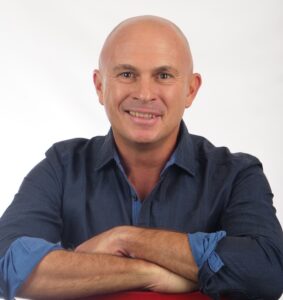
Get more human resources and leadership advice.
Less drama? Greater teamwork and job satisfaction? TeamBonding is here to help you build a stronger and happier team. Subscribe to get our team building podcast and thought leadership blogs sent straight to your inbox.
